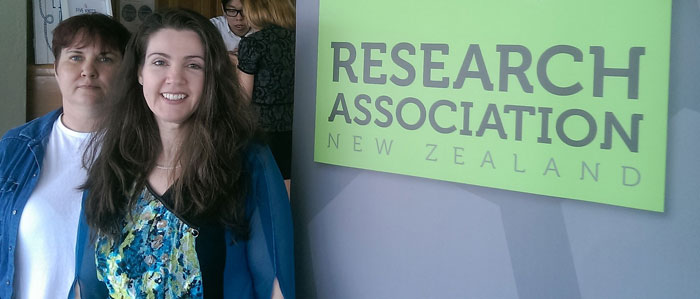The benefits of online qualitative research are misunderstood and under-used by market researchers and their clients compared with traditional face-to-face focus groups say two leading qualitative researchers.
In a Research Association NZ seminar entitled Let us come to you – enabling participant-centric conversations, Karin Curran of Curran Research Associates and Louisa Wood of Ipsos counted off the many benefits of online qualitative research.
They questioned why researchers and clients require people to physically get together for a focus group when we all live in an online world and online research typically provides more in-depth and accurate information from a more diverse panel.
“In 10 years neither of us have ever had a client who regretted opting for online,” Curran said.
The presenters said the benefits of online qualitative research included:
- Sensitive topics: People are often more comfortable talking about sensitive personal or health issues online than face-to-face.
- Diverse locations: Online qualitative research can easily and affordably get panellists from diverse locations when the cost of getting these people face-to-face is high
- Detailed responses: A 12-15 person online panel over five days (correlating to two standard focus groups) might provide 300 pages of transcripts as each person will be engaged for one to two hours compared with just 10-15 minutes in a face-to-face group
- Accurate responses: Rather than asking “Do you eat healthy foods?”, online researchers can ask “Please send photos of the contents of your pantry and fridge” to provide more accurate responses than aspirational answers about healthy eating
- Subjects correct themselves: Over a five day online conversation respondents have a better opportunity than in a one-off face-to-face focus group to reflect on their answers and correct them if they are inaccurate
- Group pressure: People are more likely to give honest answers online to questions involving social or environmental responsibility e.g. “Do you recycle?” than face-to-face
- Divisive issues: For a question like: “What are the biggest issues facing Auckland over the next five years?” people in a face-to-face group may be unwilling to give their thoughts on immigration and crime but will online
- Non-native English speakers: An asynchronous online approach gives non-native English speakers time to translate and understand questions and prepare answers, important in our ethnically diverse world
- C-suite and professionals: Online is ideal for busy, time-poor C-suite and professional panellists (e.g. doctors) as they can organise to respond when they have time rather than having to be at a focus group or interview at an appointed time
- No crowding out: Often in face-to-face groups some people dominate the conversation so others aren’t heard whereas online there is no need to compete for floor time
- Organised transcripts: Transcripts are organised by topic making them easier to follow than face-to-face transcripts which can jump around
- No weather or parking issues: For online research
Curran and Wood said there are some operational considerations for researchers looking to take their qualitative research projects online including:
- Recruitment: Skilful recruitment of good quality panellists who reflect the diversity of the sample population is just as important as for face-to-face research
- Daily management: Communicating with the research subjects daily to ensure they are meeting their obligations will ensure they respond well
- Clear guidelines: Setting clear guidelines for the research panellists, for example on how they should answer questions and how much time they should take to do this, will help
- No less expensive: The reason for going online should not be to save money as there is a lot of work involved – typically it will be over a week and there will be more data
- Platforms: There are dozens of top and second tier online research platforms from which researchers can choose appropriate functionality and a responsive supplier
- Mobile apps: There are special mobile apps for qualitative research that participants can download – web-based platforms can be device agnostic and researchers need to consider which medium (desktop and/or tablet/phone) will best suit the research and the participants and design the research accordingly
- Incentive payments: Should be made as for face-to-face focus groups
- Time flexibility: Researchers can work moderation time around other commitments
For more information contact:
- RANZ ceo Robert Bree: www.researchassociation.org.nz
- Karin Curran: www.curranresearch.co.nz
- Louisa Wood: www.ipsos.co.nz
- Tim Marshall: tim_marshall@cbd.co.nz
About RANZ
The Research Association New Zealand is the professional membership organisation for the community of professional providers and users of research, data and insights. Our vision is for research, data and insights professionals to contribute their skills and expertise to the future development of the New Zealand business and social economies. Our mission is to advocate for the relevance, development and growth of the research, data and insights profession In New Zealand.
Share this Post



